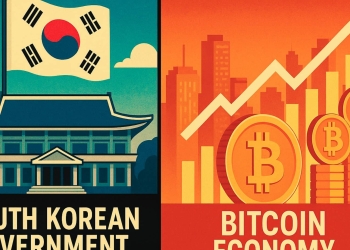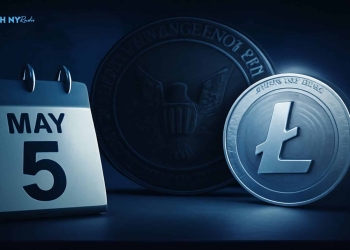The Bitcoin Reserve controversy is making headlines again—and this time, it’s gold bug Peter Schiff fanning the flames. In a recent statement, Schiff didn’t criticize former President Donald Trump’s decision to back Bitcoin as part of a U.S. Strategic Reserve. While the crypto crowd may cheer Trump’s move, Schiff argues it’s a risky gamble with America’s future.
To break down the real implications, insights, and data points behind the Bitcoin Reserve initiative—and why this high-stakes financial shift is more complex than it seems.
Trump’s Bitcoin Reserve: The Basics
In March 2025, Donald Trump announced the formation of a Strategic Bitcoin Reserve as part of a bold effort to include digital assets in the national financial framework. It was an unprecedented move—no other U.S. president had publicly embraced a crypto reserve in this way. The idea? Hedge against inflation, global instability, and central banking overreach.
Supporters hailed it as futuristic. But not everyone was impressed.
Peter Schiff’s Gold-Backed Criticism
Peter Schiff, a long-standing opponent of Bitcoin and champion of gold, immediately called out the move. His main point: the Bitcoin Reserve had already lost value—over 12%—since its inception, whereas gold rose by 2% in the same period.
According to Schiff, this isn’t just a bad trade—it’s symbolic of deeper flaws in relying on volatile digital assets for national economic strategy. He emphasized that gold has centuries of trust behind it, while Bitcoin remains untested on that level.

Real Performance Numbers Tell a Mixed Story
Critics of Schiff argue he’s cherry-picking short-term metrics. While it’s true that Bitcoin saw a 12% dip after the reserve was announced, its broader 10-year growth rate outpaces most traditional assets. In fact, Bitcoin has delivered average annual returns of 60% over the past decade, compared to gold’s 2%.
Still, Schiff’s point isn’t about short-term volatility. He’s arguing the foundational logic of a Bitcoin Reserve is flawed—Bitcoin doesn’t have intrinsic value, isn’t backed by physical assets, and relies on speculative sentiment.
Gold vs. Bitcoin: An Age-Old Showdown with Modern Stakes
This isn’t the first time these two financial titans—gold and Bitcoin—have clashed. But when it comes to national reserves, the stakes are higher. Schiff warns that using Bitcoin in official reserves could incentivize reckless monetary policy, like excessive printing of dollars to buy Bitcoin, which might weaken the dollar itself.
He paints a dystopian scenario where the U.S. dollar collapses under the weight of speculative finance, while gold could have acted as a stabilizing force.
What Crypto Proponents Are Saying?
Of course, the crypto community fired back. Many pointed out that Trump’s Bitcoin Reserve initiative isn’t just a financial decision—it’s a signal of changing times. As fiat currencies face skepticism and central banks inch toward digital currencies, Bitcoin’s inclusion in national reserves feels like a logical step.
To them, Schiff represents a mindset stuck in the past. They believe Bitcoin, with its fixed supply and decentralized model, is more aligned with future-proofing than relying on centuries-old commodities.
Could the Bitcoin Reserve Actually Backfire?
It’s a fair question. The Bitcoin Reserve does introduce risk. Bitcoin is highly volatile, reacts sharply to regulatory news, and is influenced by global macroeconomic trends. Unlike gold, which maintains relative stability, Bitcoin can lose—or gain—10% in a single day.
If volatility isn’t managed carefully, a Bitcoin-backed reserve could destabilize more than it secures.
Final Word: A Clash Between Old and New Financial Worlds
The Bitcoin Reserve battle between Donald Trump and Peter Schiff isn’t just political or ideological—it’s symbolic. It pits the old world of tangible assets, trust in metal, and monetary caution against a new world of code, community, and decentralized ambition.
Whether you’re Team Bitcoin or Team Gold, one thing is clear: how nations choose to store wealth is no longer a quiet, bureaucratic choice. It’s a headline-grabbing, market-moving declaration of values. And Peter Schiff just made sure we’re all paying attention.
Follow us on Twitter and LinkedIn, and join our Telegram channel for more news.
FAQs
1. What is Trump’s Bitcoin Reserve?
Trump’s Bitcoin Reserve refers to a proposed strategic reserve of Bitcoin backed by the U.S. government, announced in March 2025.
2. Why is Peter Schiff against the Bitcoin Reserve?
Schiff argues that Bitcoin is too volatile and lacks intrinsic value. He believes gold would be a more stable and proven store of value.
3. Has the Bitcoin Reserve lost money so far?
Yes, since its announcement, Bitcoin’s value has declined over 12%, while gold gained about 2% in the same timeframe.
4. Is Bitcoin more profitable than gold in the long run?
Historically, yes. Bitcoin has shown higher long-term returns, averaging 60% annually over the past decade, compared to gold’s 2%.
Glossary of Key Terms
Bitcoin Reserve: A national holding of Bitcoin used to hedge against inflation and economic uncertainty, similar to gold reserves.
Peter Schiff: A well-known economist, investor, and vocal critic of cryptocurrencies, particularly Bitcoin.
Volatility: The rate at which the price of an asset increases or decreases; Bitcoin is known for high volatility.
Intrinsic Value: The perceived or calculated true value of an asset, based on fundamentals. Schiff argues Bitcoin lacks this.
Fiat Currency: Government-issued currency not backed by a physical commodity like gold (e.g., the U.S. dollar).
Hedge: An investment made to reduce the risk of adverse price movements in an asset.
Decentralization: A key feature of Bitcoin, meaning a central authority or government does not control it.
Sources
https://ambcrypto.com/peter-schiff-slams-trumps-bitcoin-reserve-gold-would-have-been-a-better-bet

























































































![BitTorrent [New]](https://s2.coinmarketcap.com/static/img/coins/64x64/16086.png)




















